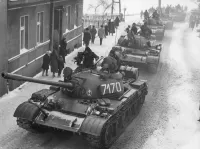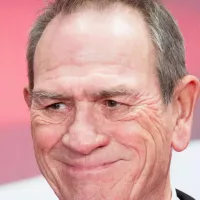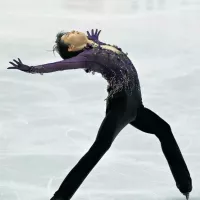Ukraine is a country in Eastern Europe, the second-largest on the continent after Russia, with which it shares a border. It also borders several other countries to the north, west, and southwest, and is bounded by the Black Sea and the Sea of Azov to the south. Kyiv is the capital and largest city. The official language is Ukrainian.
1906: Migration to the East
In 1906, after the opening of the Trans-Siberian Railway, an additional 1.6 million Ukrainians emigrated to the east.
1917: Ukrainian People's Republic formed
In 1917, following the Russian Revolution, the short-lived Ukrainian People's Republic was formed.
1918: Foundation of Ukrinform
In 1918, The National News Agency of Ukraine, Ukrinform was founded in Kyiv.
1921: Fighting on Ukrainian Soil Persisted
Fighting on Ukrainian soil persisted until late 1921, marking the end of Ukraine's involvement in World War I.
1921: Famine Hits Eastern Provinces
In 1921, a famine further hit the eastern provinces of Ukraine.
July 1922: Arrests and deportations of Ukrainian intellectuals began
In July 1922, arrests and deportations of Ukrainian intellectuals began in Soviet Ukraine, continuing throughout the 1920s.
1922: Ukrainian Soviet Socialist Republic Established
In 1922, the Bolsheviks consolidated control over much of the former Russian Empire and established the Ukrainian Soviet Socialist Republic, which became a constituent republic of the Soviet Union.
1932: Socialist realism becomes state policy
In 1932, Stalin made socialist realism state policy in the Soviet Union, with the decree "On the Reconstruction of Literary and Art Organisations", which stifled creativity.
1935: Shift in Polish Policy After Piłsudski's Death
Following Piłsudski's death in 1935, the Polish government abandoned the policy of offering local autonomy to Ukrainians due to continued unrest.
September 1939: Division of Poland
In September 1939, following the invasion of Poland, German and Soviet troops divided the territory, with Eastern Galicia and Volhynia becoming part of Ukraine.
1939: Western Ukrainians Joined Soviet Union
In 1939, some western Ukrainians, who had only recently joined the Soviet Union, initially hailed the Germans as liberators during the invasion.
1940: Territorial Gains Secured
In 1940, further territorial gains were secured when the Ukrainian SSR incorporated districts of Bessarabia, Northern Bukovina, and the Hertsa region from Romania.
June 1941: German Invasion of the Soviet Union
On 22 June 1941, German armies invaded the Soviet Union, initiating nearly four years of total war.
1942: Ukrainian Insurgent Army (UPA) Formed
In 1942, the Ukrainian Insurgent Army (UPA) was created as the armed forces of the underground Organisation of Ukrainian Nationalists (OUN).
1943: UPA Massacres of Ethnic Poles
From mid-1943 until the end of the war, the UPA carried out massacres of ethnic Poles in the Volhynia and Eastern Galicia regions.
1944: Ukrainian Partisan Resistance
In 1944, half of the Pro-Soviet partisan guerrilla resistance units, which counted up to 500,000 troops, were Ukrainian.
1945: Soviet Ukraine joins the United Nations
In 1945, Soviet Ukraine joined the United Nations as one of the original members.
1945: Ukrainian SSR Founding Member of the UN
In 1945, the Ukrainian SSR became one of the founding members of the United Nations (UN).
1946: Famine in Ukraine
In 1946, Ukraine was hit by a famine which was caused by drought and the wartime destruction of infrastructure.
1947: Territorial Gains Internationally Recognized
In 1947, the USSR's territorial gains were internationally recognised by the Paris peace treaties.
1947: Famine in Ukraine
In 1947, the famine that started in 1946 continued in Ukraine, contributing to significant loss of life.
1950: Republic surpassed pre-war levels of industry and production
By 1950, the republic had fully surpassed pre-war levels of industry and production.
January 1953: Ukrainians Among Special Deportees
As of 1 January 1953, Ukrainians were second only to Russians among adult "special deportees", comprising 20% of the total.
1953: Khrushchev Becomes Leader
Following the death of Stalin in 1953, Nikita Khrushchev became the new leader of the USSR.
1964: Leonid Brezhnev General Secretary
In 1964, Leonid Brezhnev became the General Secretary of the Communist Party of the Soviet Union.
1982: Brezhnev Remains General Secretary
In 1982, Leonid Brezhnev continued to serve as the General Secretary of the Communist Party of the Soviet Union.
April 1986: Chernobyl disaster
On 26 April 1986, a reactor in the Chernobyl Nuclear Power Plant exploded, resulting in the Chernobyl disaster.
1986: Chernobyl Nuclear Power Plant accident
In 1986, there was an accident at the Chernobyl Nuclear Power Plant, causing radiation contamination in the northeast of Ukraine.
1988: Expansion of higher education institutions
By 1988, the number of higher education institutions in Ukraine increased to 146, with over 850,000 students.
July 1990: Declaration of State Sovereignty of Ukraine
On 16 July 1990, the Supreme Soviet of the Ukrainian Soviet Socialist Republic adopted the Declaration of State Sovereignty of Ukraine as part of the "parade of sovereignties".
August 1991: Proclamation of outright independence
Following a failed coup in Moscow, Ukraine proclaimed outright independence on 24 August 1991.
1991: Start of economic recession
In 1991, Ukraine entered a period of economic recession, losing 60% of its GDP by 1999.
1991: Ukraine Gained Independence
In 1991, Ukraine gained independence as the Soviet Union dissolved, declaring itself neutral.
1991: Reestablishment of Ukrainian independence
In 1991, Ukrainian independence was reestablished following the decline and collapse of the USSR.
1991: Usage of "the Ukraine" politicised
Since Ukraine's declaration of independence in 1991, the usage of "the Ukraine" has become politicised and is now rarer.
1991: Improvements in the court system
Since Ukraine's independence in 1991, the court system is considered to have been much improved.
1992: Membership in security and cooperation organizations
In 1992, Ukraine joined the Conference on Security and Cooperation in Europe (now the OSCE) and the North Atlantic Cooperation Council.
1992: Ukraine signs Lisbon Protocol
In 1992, Ukraine signed the Lisbon Protocol, agreeing to relinquish all nuclear weapons to Russia and join the Nuclear Non-Proliferation Treaty.
1992: Contributions to UN peacekeeping operations
Since 1992, Ukraine has made contributions to UN peacekeeping operations.
1993: Peak population in Ukraine
Following the dissolution of the Soviet Union, Ukraine's population hit a peak of roughly 52 million in 1993.
1993: Hyperinflation peaks
In 1993, Ukraine experienced hyperinflation that peaked at 10,000%.
1993: Sergey Bubka holds record in the Pole vault
Sergey Bubka held the record in the Pole vault from 1993 to 2014.
1994: Ukraine establishes partnership with NATO
In 1994, Ukraine established a partnership with NATO.
1994: Signing of the Budapest memorandum
In 1994, Ukraine signed the Budapest memorandum, agreeing to hand over nuclear weapons in exchange for guarantees of security and territorial integrity.
June 1996: Adoption of the Constitution of Ukraine
On 28 June 1996, the Constitution of Ukraine was adopted and ratified at the 5th session of the Verkhovna Rada.
1996: Ukraine becomes free of nuclear weapons
By 1996, Ukraine had eliminated all nuclear weapons from its territory.
1996: New Constitution Adopted
In 1996, a new constitution was adopted in Ukraine as the country transitioned to a free market liberal democracy.
1997: Polling on granting Russian official status began
In 1997, polling began regarding the idea of granting Russian official status throughout Ukraine or certain regions. Popularity for this idea reached its lowest level since the polling started.
1998: Partnership and Cooperation Agreement with EU
In 1998, The European Union's Partnership and Cooperation Agreement (PCA) with Ukraine went into force.
1998: Hryvnia falls sharply
In late 1998, Ukraine's new currency, the hryvnia, experienced a sharp fall, partially due to the Russian debt default that year.
December 1999: EU Summit in Helsinki
At the EU Summit in December 1999 in Helsinki, the European Union recognized Ukraine's long-term aspirations.
1999: End of economic recession
By 1999, Ukraine had lost 60% of its GDP due to an economic recession that began in 1991.
1999: Ukraine served as a non-permanent member of the UN Security Council
From 1999, Ukraine served as a non-permanent member of the UN Security Council.
2000: Museum of Pysanka built in Kolomyia
In 2000, the museum of Pysanka was built in the city of Kolomyia near the foothills of the Carpathian Mountains.
2001: Ukraine's population census
According to the 2001 census, ethnic Ukrainians made up roughly 78% of the population, while Russians were the largest minority at some 17.3% of the population.
2001: Ukraine served as a non-permanent member of the UN Security Council
Until 2001, Ukraine served as a non-permanent member of the UN Security Council.
2002: NATO-Ukraine Action Plan signed
In 2002, deeper cooperation with NATO was set by the NATO-Ukraine Action Plan.
2002: Guarantee of court freedom
Since 2002, the courts enjoy legal, financial and constitutional freedom guaranteed by Ukrainian law.
2003: Ukrainian unit deployed to Iraq
In 2003, a Ukrainian unit was deployed as part of the multinational force in Iraq under Polish command.
2004: Orange Revolution
In 2004, Ukraine experienced the Orange Revolution, ushering in electoral and constitutional reforms.
2004: Criticism of law enforcement agencies
Law enforcement agencies, particularly the police, faced criticism for their heavy handling of the 2004 Orange Revolution.
2005: Ukrainian unit deployed to Iraq
In 2005, a Ukrainian unit was deployed as part of the multinational force in Iraq under Polish command.
2005: Orange Revolution Reforms
In 2005, electoral and constitutional reforms continued after the Orange Revolution.
2005: Change in school program
Since 2005, an eleven-year school programme in Ukraine was replaced with a twelve-year one.
2007: Museum of Pysanka nominated as a modern monument
In 2007, the museum of Pysanka won a nomination as the monument of modern Ukraine, part of the Seven Wonders of Ukraine action.
2008: NATO declares Ukraine will eventually become a member
During the 2008 Bucharest summit, NATO declared that Ukraine would eventually become a member of NATO when it meets the criteria for accession.
2008: Vasyl Lomachenko wins Olympic gold medal
In 2008, Vasyl Lomachenko won an Olympic gold medal.
2010: Formation of expert group on court reform
In 2010, President Yanukovych formed an expert group to make recommendations on how to "clean up the current mess and adopt a law on court organisation".
2010: Court proceedings in Russian
Since 2010, court proceedings can be held in Russian by mutual consent of the parties.
2011: Ukraine granted right to organize EuroBasket 2015
In 2011, Ukraine was granted the right to organize EuroBasket 2015.
August 2012: Law on regional languages effective
Effective in August 2012, a new law on regional languages entitled any local language spoken by at least a 10 percent minority be declared official within that area.
2012: Vasyl Lomachenko wins Olympic gold medal
In 2012, Vasyl Lomachenko won an Olympic gold medal.
2012: Ministry of Culture of Ukraine formed the National Register of Elements of the Intangible Cultural Heritage of Ukraine
Since 2012, the Ministry of Culture of Ukraine has formed the National Register of Elements of the Intangible Cultural Heritage of Ukraine, which consists of 115 items as of September 2025.
2013: Ukraine national basketball team qualifies to FIBA World Cup
In 2013, the Ukraine national basketball team finished sixth in EuroBasket 2013 and qualified to FIBA World Cup for the first time in its history.
2013: Euromaidan protests begin
In the winter of 2013, protests began on the Euromaidan in response to Yanukovych's refusal to sign the European Union–Ukraine Association Agreement.
February 2014: Revolution of Dignity
By the end of the protests on 21 February 2014, Yanukovych fled from Ukraine and was removed by the parliament in what is termed the Revolution of Dignity.
March 2014: Annexation of Crimea by Russia
In late February and early March 2014, Russia annexed Crimea using its Navy in Sevastopol and so-called little green men.
June 2014: Signing of the EU association agreement
Shortly after Yanukovych fled Ukraine, the country signed the EU association agreement in June 2014.
August 2014: Open invasion in Donbas
On 24 August 2014, Russian forces started an open invasion in Donbas.
2014: Population decrease in Ukraine
From 1993 to 2014, Ukraine's total population decreased by 6.6 million due to factors like death rate exceeding birth rate and mass emigration.
2014: Deterioration of relations with Russia
In 2014, Russia–Ukraine relations rapidly deteriorated due to the annexation of Crimea, energy dependence, and payment disputes.
2014: Ukrainian Parliament voted to repeal the law on regional languages
In 2014, following the Revolution of Dignity, the Ukrainian Parliament voted to repeal the law on regional languages, making Ukrainian the sole state language at all levels.
2014: Euromaidan Revolution
In 2014, resurgent political crises prompted mass demonstrations known as the Euromaidan, leading to a revolution, after which Russia annexed Crimea and pro-Russian unrest began in Donbas.
2014: Annexation of Crimea
In 2014, the Russian Federation annexed Sevastopol and the Autonomous Republic of Crimea.
2014: Ukrainian frigate joins Operation Atalanta
In 2014, the Ukrainian frigate Hetman Sagaidachniy joined the European Union's counter-piracy Operation Atalanta and was part of the EU Naval Force off the coast of Somalia for two months.
2014: Start of the Russo-Ukrainian War
In 2014, the start of the Russo-Ukrainian War caused a series of sharp recessions in Ukraine.
2014: Sergey Bubka no longer holds record in the Pole vault
Sergey Bubka's Pole vault record, set in 1993, was broken in 2014.
2014: Russia pursues a policy of forced Russification
Since 2014, during the Russian-Ukrainian war, Russia has been pursuing a policy of forced Russification of the territories of Ukraine it has occupied.
2014: Fall in visitor numbers following Russian annexation of Crimea
Tourism was the mainstay of Crimea's economy before a major fall in visitor numbers following the Russian annexation in 2014.
February 2015: Withdrawal from Debaltseve
In February 2015, Ukrainian troops withdrew from Debaltseve, establishing the frontline.
2015: Energy policy prioritizes diversifying energy supply
Since 2015, Ukraine's energy policy has prioritized diversifying energy supply.
2015: Ukraine organizes EuroBasket
Ukraine was granted a right to organise EuroBasket 2015 in 2011.
January 2016: DCFTA enters into force
In January 2016, the Deep and Comprehensive Free Trade Area (DCFTA) entered into force, integrating Ukraine into the European Single Market and the European Economic Area.
2016: Protestant population in Ukraine
In 2016, Protestants made up 1.9% of the population in Ukraine.
2017: Ukraine's education law bars primary education
Ukraine's 2017 education law bars primary education in public schools in grade five and up in any language but Ukrainian.
2018: Oleksandr Usyk becomes undisputed cruiserweight champion
In 2018, Oleksandr Usyk became the undisputed cruiserweight champion.
2018: Growth of Protestant population in Ukraine
In 2018, the Protestant community in Ukraine grew to comprise 2.2% of the population, up from 1.9% in 2016.
January 2019: Recognition of the Orthodox Church of Ukraine
In January 2019, the Orthodox Church of Ukraine was recognised as independent of Moscow.
February 2019: Amendment to constitution
On 7 February 2019, the Verkhovna Rada voted to amend the constitution to state Ukraine's strategic objectives as joining the European Union and NATO.
2019: Ukrainians below poverty line
About 1% of Ukrainians lived below the national poverty line in 2019, and unemployment was 4.5%.
2019: Fossil fuel subsidies in Ukraine
Fossil fuel subsidies in Ukraine were US$2.2 billion in 2019.
2019: Religious affiliation of Ukrainians
In 2019, 82% of Ukrainians identified as Christians, with 72.7% declaring themselves as Eastern Orthodox, 8.8% as Ukrainian Greek Catholics, 2.3% as Protestants, and 0.9% as Latin Church Catholics. Other Christians comprised 2.3%. Judaism, Islam, and Hinduism were the religions of 0.2% of the population each. According to a KIIS study, about 58.3% of the Ukrainian Orthodox population were members of the Orthodox Church of Ukraine, and 25.4% were members of the Ukrainian Orthodox Church (Moscow Patriarchate).
2019: Law allowing for official use of regional languages found unconstitutional
In 2019, the law allowing for official use of regional languages was found unconstitutional.
2020: Ukraine ranks as wheat exporter
During the 2020 international wheat marketing season, Ukraine ranked as the sixth largest wheat exporter.
2020: Creation of the Lublin Triangle initiative
In 2020, Lithuania, Poland and Ukraine created the Lublin Triangle initiative, which aims to create further cooperation between the three countries.
2020: Ukraine's government debt
In 2020, Ukraine's government debt was roughly 50% of its nominal GDP.
2020: Arrival of the COVID-19 pandemic
In 2020, the COVID-19 pandemic arrived in Ukraine, which was made much harder by low vaccination rates and the ongoing invasion.
2021: Impact of Russo-Ukrainian War on food security
According to the Food and Agriculture Organisation of the United Nations, the likely disruptions caused by the Russo-Ukrainian War to Ukraine's grain and oilseed sectors, could jeopardise the food security of many countries in 2021.
2021: Ukraine ranks as wheat exporter
During the 2021 international wheat marketing season, Ukraine ranked as the sixth largest wheat exporter.
2021: Mineral commodities and light industry sectors
In 2021 mineral commodities and light industry were important sectors in Ukraine.
2021: KIIS survey on religiosity in Ukraine
In 2021, a survey by the Kyiv International Institute of Sociology (KIIS) found that 82% of Ukrainians identified as religious, 7% as atheists, and 11% found it difficult to answer. Religiosity was highest in Western Ukraine (91%) and lowest in Donbas (57%) and Eastern Ukraine (56%).
2021: Agriculture largest sector of Ukraine economy
In 2021, agriculture was the biggest sector of the economy in Ukraine, which is one of the world's largest wheat exporters.
2021: Average salary in Ukraine reaches highest level
In 2021, the average salary in Ukraine reached its highest level at almost ₴14,300 (US$525) per month.
2021: IT industry contribution to Ukraine's GDP
The IT industry contributed almost 5 per cent to Ukraine's GDP in 2021.
February 2022: UNESCO verification of damage to sites in Ukraine begins
Between February 2022 and March 2023, UNESCO verified the damage to 247 sites in Ukraine, including religious sites, artistic or historical buildings, monuments, and libraries.
February 2022: Russian invasion of Ukraine
In the early hours of 24 February 2022, Russia launched the 2022 Russian invasion of Ukraine.
February 2022: Declaration of martial law
Martial law was declared when Russia invaded in February 2022, and continues.
June 2022: Candidate status granted to Ukraine by EU
In June 2022, Ukraine was granted candidate status by the European Union after President Volodymyr Zelenskyy requested immediate admission due to the Russian invasion.
June 2022: Ukraine granted EU candidate status
On 23 June 2022, Ukraine was granted candidate status to the European Union.
2022: Internet usage in Ukraine
As of 2022, 75% of the population in Ukraine use the internet, and social media is widely used by government and people.
2022: Ukraine's estimated population before Russian invasion
Before the 2022 Russian invasion of Ukraine, the country had an estimated population of over 41 million people and was the eighth-most populous country in Europe.
2022: IMF expects Ukraine economy to shrink
Despite supplying emergency financial support, the IMF expected the economy to shrink considerably by 35% in 2022 due to the Russo-Ukrainian war.
2022: Russian invasion of Ukraine
During the first few weeks of the 2022 Russian invasion of Ukraine the military found it difficult to defend against shelling, missiles and high level bombing; but light infantry used shoulder-mounted weapons effectively to destroy tanks, armoured vehicles and low-flying aircraft.
2022: IT industry contribution to Ukraine's GDP
In 2022, the IT industry continued to contribute to Ukraine's GDP both inside and outside the country.
2022: Ukrainian refugee crisis
In early 2022, over 4.1 million fled the country after the 2022 Russian invasion of Ukraine, causing the Ukrainian refugee crisis.
2022: Russian invasion of Ukraine leads to attacks on healthcare
Since the 2022 Russian invasion of Ukraine, the World Health Organization has documented over 2,254 attacks on healthcare in Ukraine.
2022: Environmental damage from Russian invasion
The environmental damage caused by the 2022 Russian invasion of Ukraine has been described as an ecocide.
January 2023: Historic centre of Odesa inscribed on the List of World Heritage in Danger
Since January 2023, the historic centre of Odesa has been inscribed on the List of World Heritage in Danger by UNESCO.
March 2023: UNESCO verification of damage to sites in Ukraine continues
Between February 2022 and March 2023, UNESCO verified the damage to 247 sites in Ukraine, including religious sites, artistic or historical buildings, monuments, and libraries.
August 2023: U.S. officials estimate Ukrainian military casualties
In August 2023, U.S. officials estimated that up to 70,000 Ukrainian soldiers were killed and 100,000 to 120,000 wounded during the Russo-Ukrainian war.
2023: Ukraine Corruption Perceptions Index
In 2023, Ukraine was rated 104th out of 180 in the Corruption Perceptions Index.
2023: Anti-corruption drive
In early 2023, a broad anti-corruption drive began with resignations of several deputy ministers and regional heads.
March 2024: 20 Days in Mariupol wins Oscar
On 10 March 2024, creators of the documentary film "20 Days in Mariupol" were awarded the Oscar for "Best Documentary Feature Film", which was the first Oscar in Ukraine's history.
October 2024: Decline in Ukrainian health due to the war with Russia
According to the October 2024 data of the World Health Organization Ukraine health needs assessment, 68% of Ukrainians reported that their health declined compared to the pre-war period. The war with Russia worsened Ukrainian children physical and mental health.
2024: Lowest Nominal GDP per Capita in Europe
As of 2024, Ukraine has the lowest nominal GDP per capita in Europe.
2024: Estimated population in Ukrainian controlled regions
The Ukrainian government estimates that the population in the regions controlled by Ukraine was 25 to 27 million in 2024.
2024: Expiration of contract to transit Russian gas
The contract to transit Russian gas through Ukraine expires at the end of 2024.
June 2025: Ukraine legalises multiple citizenship
In June 2025, Ukraine legalized multiple citizenship.
September 2025: National Register of Elements of the Intangible Cultural Heritage of Ukraine
As of September 2025, the National Register of Elements of the Intangible Cultural Heritage of Ukraine, formed by the Ministry of Culture of Ukraine since 2012, consists of 115 items.
2025: Ukraine's ranking in the Global Innovation Index
Ukraine was ranked 66th in 2025 in the Global Innovation Index.
Mentioned in this timeline

Basketball is a team sport played on a rectangular court...
The Union of Soviet Socialist Republics USSR existed from to...

Martial law is the imposition of military rule in place...
Belarus is a landlocked country in Eastern Europe bordered by...
Iraq officially the Republic of Iraq is a West Asian...

News encompasses information about current events disseminated through various media...
Trending

49 minutes ago Victoria Jones, daughter of Tommy Lee Jones, cause of death revealed.

50 minutes ago Amber Glenn's Olympic short program: a blend of pressure and glory.

50 minutes ago America's 'Blade Angels': Liu, Glenn, and Levito, Prepare for the 2026 Winter Olympics.

50 minutes ago Kaori Sakamoto, Figure Skating Star, Aiming for Olympic Gold Before Potential Retirement

2 hours ago Anastasiia Gubanova shines in the Women's Single Skating Short Program at 2026 Olympics.

2 hours ago Tremaine Edmunds to the Bucs? Bears consider cutting T.J. Edwards: Analyst speculation surfaces.
Popular

Jesse Jackson is an American civil rights activist politician and...
Randall Adam Fine is an American politician a Republican who...

Pam Bondi is an American attorney lobbyist and politician currently...

Barack Obama the th U S President - was the...

Kid Rock born Robert James Ritchie is an American musician...
The Winter Olympic Games a major international multi-sport event held...